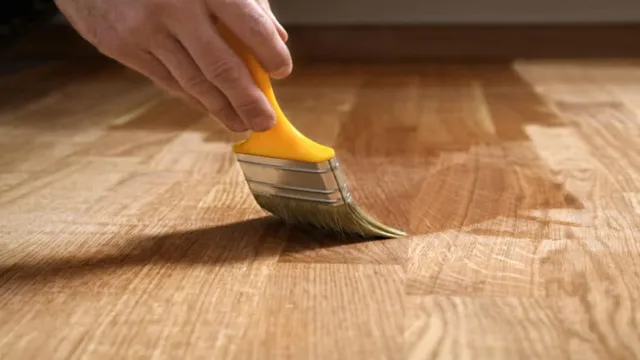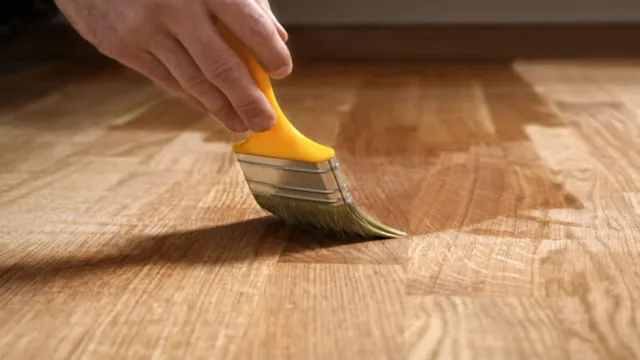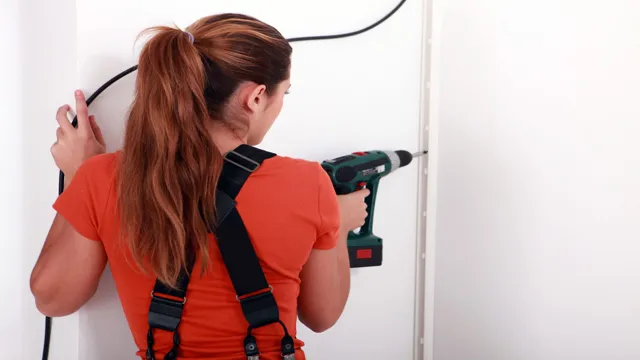What Size Screws for Framing: A Guide to Choosing the Right Length and Gauge
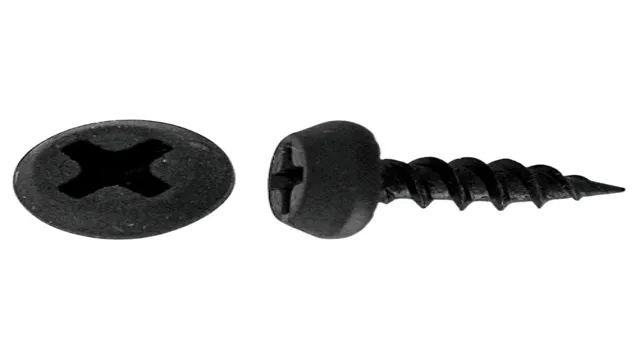
Framing is a crucial part of any construction project. It is the backbone that supports the entire structure and is responsible for its stability and durability. Choosing the right screws for framing is essential to ensure that the frames will withstand any loads and stress, preventing the structure from collapsing.
But with so many screw types and sizes available in the market, how do you know which one to pick? In this blog, we’ll share with you some tips on how to choose the right screws for framing. We’ll take you through the different types of screws you can use, their sizes, and their material composition. We’ll also discuss other important factors that you need to consider, such as the type of wood you’re using, the thickness of the framing, and the load requirements.
By the end of this blog, you’ll have a better understanding of the importance of choosing the right screws for framing and how to pick the ones that suit your construction needs. Let’s dive in!
Understanding Screw Sizes and Dimensions
When it comes to framing, selecting the correct size of screws is vital to ensure the stability of the structure. Generally, a 3 ½ inch wood screw is recommended for framing applications. However, it is essential to keep in mind that the screw size and length can vary depending on the specific project requirements.
For instance, if you’re building a deck, you might need a longer screw to hold the planks in place. Additionally, it is crucial to understand the diameter of the screw. A screw with a larger diameter will provide better holding power.
Therefore, it is crucial to consider both the length and diameter of the screw when choosing the right option for your framing project. Keep in mind that choosing the wrong size of screw can cause structural instability, so it is always advisable to seek expert advice if you’re unsure about the specific screw size and dimensions you need for your framing project.
Thread Diameter and Length
When it comes to screws, understanding their size and dimensions is essential. One of the most critical factors to know is the thread diameter and length. Thread diameter refers to the width of the screw shaft where the thread is cut.
This measurement is usually indicated in millimeters or inches, depending on the country of origin. Thread length, on the other hand, is the part of the screw that has the threaded area. It’s essential to get the correct diameter and length of a screw because using the wrong size can cause weak joints or damage to the material being fastened.
It’s always a good idea to measure twice and check the manufacturer’s specifications before purchasing screws to ensure the correct size and length for your project. By understanding screw sizes and dimensions, you can ensure that your screws will work correctly and provide a reliable hold.
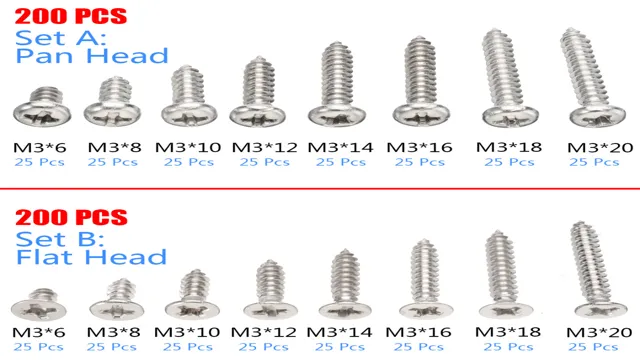
Head Type and Size
When it comes to understanding screw sizes and dimensions, one critical aspect to consider is the head type and size. The head of a screw is the part that sits on top of the material being fastened, and there are several different types of screw heads available. The most common types of screw heads include flat, oval, round, and pan heads, each with unique features and functionalities.
In addition to the head type, it’s important to consider the head size, as this can affect the strength and stability of the screw. The size of the head is measured using a numbering system, with larger numbers indicating a larger head size. Understanding the head type and size of screws can help you choose the right screw for your project and ensure a secure and reliable hold.
So, next time you’re in the hardware store, don’t forget to consider the head type and size before making your purchase!
Factors to Consider When Selecting Screws for Framing
When selecting screws for framing, there are several factors to consider. Firstly, you must ensure that the screws you choose are the appropriate size for the job. Common sizes for framing screws range from
5 inches to 5 inches in length and 8-10 gauge in thickness. The length of the screw will depend on how thick the framing material is, as well as the length of the screw threads needed to secure it in place.
Additionally, you should consider the type of screwhead that will work best for the application. Hex head screws are often used for framing due to their strength and durability. Lastly, it is important to choose screws that are made from high-quality materials, such as stainless steel or coated carbon steel, to ensure that they will resist rust and corrosion.
By taking these factors into consideration, you can feel confident that you have selected the appropriate screws for your framing project.
Material Undergoing Framing
When it comes to selecting screws for framing, there are a few important factors to consider. Firstly, it’s important to think about the material you’re framing, as the type of screw you choose will need to be appropriate for the material. For example, if you’re framing with softwoods like pine or spruce, you’ll want to use a screw with a coarse thread to ensure a stronger hold.
On the other hand, if you’re working with hardwoods like maple or oak, a finer thread screw can work well. Another important factor to consider is the length of the screw. You’ll want to make sure that you choose a length that is appropriate for the thickness of the material you’re framing, while also ensuring that the screw isn’t so long that it goes through the material and sticks out the other side.
Lastly, it’s important to choose a screw that is corrosion-resistant, especially if you’re working on outdoor framing projects. Overall, taking these factors into consideration will help you choose the right screw for framing and ensure a strong hold that will last.
Load-bearing Capacity
When you’re selecting screws for framing, the load-bearing capacity is a crucial factor to consider. It’s important to choose screws that can handle the weight of the structure and any permanent fixtures or loads that will be placed on it. The load-bearing capacity of a screw depends on several factors, including the size and type of screw, the material it’s made from, and the depth and quality of the pilot hole.
For example, a larger and thicker screw made from high-grade steel will have a higher load-bearing capacity than a smaller screw made from a weaker material. It’s also crucial to ensure the pilot hole is deep enough and of good quality to provide the necessary support. Remember, choosing screws with inadequate load-bearing capacity can result in a weakened and potentially dangerous structure.
Environmental Conditions
When selecting screws for framing, it is important to consider the environmental conditions in which they will be used. Environmental factors such as temperature, moisture, and exposure to the elements can all impact the performance and durability of your screws. For example, if you are building in an area with high humidity or frequent rain, you may want to consider using stainless steel screws to prevent rust and corrosion.
On the other hand, if you are working in an area with extreme temperature fluctuations, you may need screws that can withstand expansion and contraction without breaking or becoming loose. Ultimately, taking the time to carefully consider the environmental conditions of your building site can help ensure that your framing screws will perform reliably and last for years to come.
Recommended Screws for Framing
When it comes to framing, using the right screws is essential to ensure stability and longevity. So, what size screws for framing should you use? The answer is pretty simple – it depends on the size and type of wood you’re using. If you’re working with soft woods like pine or cedar, experts recommend using #8 screws that are at least
5 inches long. For hard woods like oak or maple, heavier duty #10 screws that are at least 3 inches long are a better option. It’s also important to consider the thickness of the wood you’re using.
Thicker wood requires longer screws to provide enough support. Finally, using screws with a coarse thread can also help them grip the wood better and provide extra stability. So, take your time to choose the right screws and don’t skimp on quality.
The right screws will help ensure your framing project is sturdy and reliable for years to come.
Coarse Thread Drywall Screws
When it comes to framing, choosing the right type of screw is crucial for ensuring structural integrity and longevity. That’s why many professionals recommend using coarse thread drywall screws. These screws have a deeper and wider thread that provides a strong grip on materials such as wood and metal.
They are specifically designed for heavy-duty applications and are ideal for framing walls and ceilings. The coarse thread also helps to prevent the screw from slipping out of the wood, ensuring a tight and secure fit. Additionally, these screws are easy to install and come in various lengths to accommodate different thicknesses of materials.
Overall, if you’re looking for a reliable and sturdy option for framing, coarse thread drywall screws are an excellent choice.
Deck Screws
When it comes to building decks or framing structures, using the right deck screws is crucial for ensuring the durability and strength of your project. Not all screws are created equal, so it’s important to choose the right type based on your specific needs. For framing, it’s recommended to use high-quality construction screws such as structural screws or lag screws, which are designed specifically for heavy-duty applications.
These screws are known for their exceptional holding power and resistance to shear forces. They come in various sizes and lengths, so you can choose the right one for your project. Whether you’re building a deck, a shed, or any other structure, using the right screws is essential for ensuring a strong and lasting outcome.
With the right deck screws, you can rest easy knowing that your project will withstand the test of time.
Conclusion and Tips for Choosing Screws for Framing
In conclusion, the question of what size screws to use for framing really comes down to a matter of perspective. Are you aiming for strength or convenience? Do you want to go big or go home? Ultimately, the size of your screws should depend on the weight and structure of your framing, as well as your personal preference. So, whether you opt for the behemoth 6-inch screws or the more modest 3-inch ones, just remember – size isn’t everything, but it sure can make a difference.
“
FAQs
What length screws should I use for framing?
For framing, 3-inch long screws are recommended to ensure a sturdy connection.
Can I use wood screws for framing?
Yes, wood screws can be used for framing as long as they are the appropriate size (at least 3 inches long) and have a high enough shear strength.
Are coarse thread or fine thread screws better for framing?
Coarse thread screws are typically better for framing because they have greater holding power and are less likely to strip the wood.
Should I use screws or nails for framing?
While both screws and nails can be used for framing, screws generally provide a stronger connection and are less likely to loosen over time.
Can I use drywall screws for framing?
No, it is not recommended to use drywall screws for framing as they are not designed for the high shear forces that are present in framing applications.
What size pilot hole should I use for framing screws?
It is important to use an appropriately sized pilot hole for framing screws to prevent splitting of the wood. A rule of thumb is to use a pilot hole that is slightly smaller than the screw diameter.
Should I use screws or bolts for heavy-duty framing projects?
While screws can be used for heavy-duty framing projects, bolts are generally recommended for their superior strength and durability.

